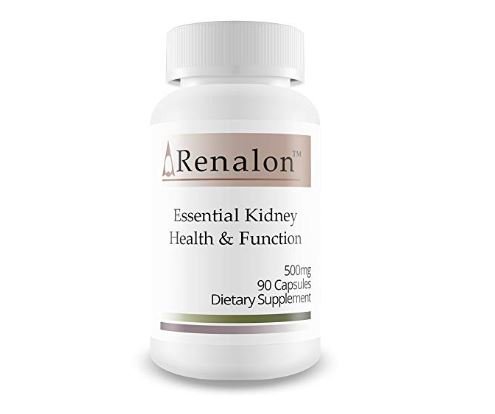4 Avoidable Stressors That Impact Your Health

The association between mind and body can be seen all around us. If you are a professional sports player, you must have an intense mental focus in order to complete the physical actions required of you. If you are having a bad day, with increased stress, your concentration is broken and you have difficulty performing physically. These are basic examples, but ones which apply to nearly every situation.
So, how does your mental focus or state impact your ability to complete physical activities?
When you’re stressed, do you find it is more difficult to do what is expected of you?
If you’re depressed, do you find it is harder to get your body out of bed?
This is no coincidence.
The popular saying ‘mind over matter’ relates to life more than we think. This can also play to our benefit in overcoming difficult situations if we put our mind to it. However, this mentality can also be our worst enemy if we allow it.
The relationship between health and telomeres
There are scientific causes for why stress affects us in the ways it does. It certainly affects us at a microscopic level, down to our individual genes. The structures within genetic material that are passed down from generation to generation are called telomeres. Our overall health is directly related to the length of these telomeres, meaning the shorter the telomeres, the poorer our health is. Shortened telomeres have been connected to inflammation in the body, which can lead to the development of a host of conditions.
With shortened telomeres, a person is predisposed to the following diseases and conditions:
- Chronic pulmonary diseases (such as emphysema and chronic bronchitis)
- Autoimmune diseases (such as rheumatoid arthritis, lupus, and multiple sclerosis)
- Cardiovascular diseases (such as congestive heart failure)
- Neurological and psychiatric diseases (such as alzheimer’s disease, bipolar disorder, and schizophrenia)
- Diabetes mellitus
- Renal failure
- Chronic infections
As a result, it is important to pay attention to the health of your telomeres!
4 factors that play a role in shortening telomeres
There are four negative factors that play a large role in shortening telomeres over time. Some of these factors are clearly detrimental to our health, as they have been reinforced by a society that is continuing to grow healthier. Luckily, health education and disease prevention are some of the most effective strategies to address telomere length.
1) Not addressing the effect of traumatic events
Children who were exposed to significant trauma will have an increased fear response and have a greater risk of psychiatric and trauma-related diagnoses as they age.
Since telomeres are present within genetic material, the effect of trauma can be transferred from parent to child and have the same impact on the body as if it were experienced first-hand. Additionally, how we parent our children can be indicative of our own upbringing.
We as parents may impart inherent reactions, attachment responses, or behavior patterns from our childhood to our children. Hereditary behaviors can happen in individuals who have experienced traumatic events and can perpetuate trauma to the next generation.
While it is not always possible to avoid experiencing traumatic situations, the health of an individual can be improved by adhering to a healthy lifestyle to decrease the risk of developing a trauma-related diagnosis. However, the best way to avoid perpetuating this pattern and effectively coping is by being open and aware of your own responses to trauma and stress.
2) Consistent consumption of processed foods
Processed foods should be avoided as much as possible, as the addition of preservatives and chemicals take nutrients away from the food.
Processed foods can include a wide array of products, including deli meats, pre-packaged items, and foods with added sugar and artificial flavorings.
Diets high in artificial sugar have been correlated with major depressive disorder.
This makes it even more important to read food labels, as some products you know and love may have surprising ingredients. One of the best alternatives to processed and pre-packaged foods are fresh fruits and vegetables. Though it is important to watch for pesticides used in production, there are no added ingredients to fresh food, making it a staple in a healthy diet.
There is science behind the connection between diet and mental health.
The body takes protein ingested from food and converts it to tryptophan (which makes vitamin B3). Tryptophan then converts to 5-HTP, which is a mood-boosting neurotransmitter, due to its production of serotonin and melatonin. Both melatonin and serotonin assist with sleep, happiness, continual feelings of reward, as well as motivation. There is strong evidence to support the connection between good food and good mood!
3) Periods of several days without physical activity
Physical activity is not only important to relieving stress, but also for a strong body.
Aside from the benefit of gaining muscle through exercise, it can also serve to strengthen bones and joints, improve lung and heart function, improve thinking clarity, and heighten the function of many other organs.
By assisting with eliminating toxins and clearing fatty deposits, exercise can improve the health of nearly the entire body.
4) Experiencing significant stress more than three times per week
The last factor is perhaps the most important of all: significant stress more than three times per week.
Self-care is important, along with engaging in activities that are good for your mental health and decrease stress levels.
It is no surprise that stress can lead to a myriad of health conditions, both physical, mental, and emotional. Because of its impact, it is even more important to manage stress through meaningful activities, such as meditation, yoga, spending time in nature, journaling, surrounding yourself with positive individuals, or practicing the spirituality of your choice.
Editor's Pick
What Is Emotional Wellness and Why Is It Important?
4 Avoidable Stressors That Impact Your Health
Most Popular Editor's Pick
Sorry, no posts matched your criteria.





